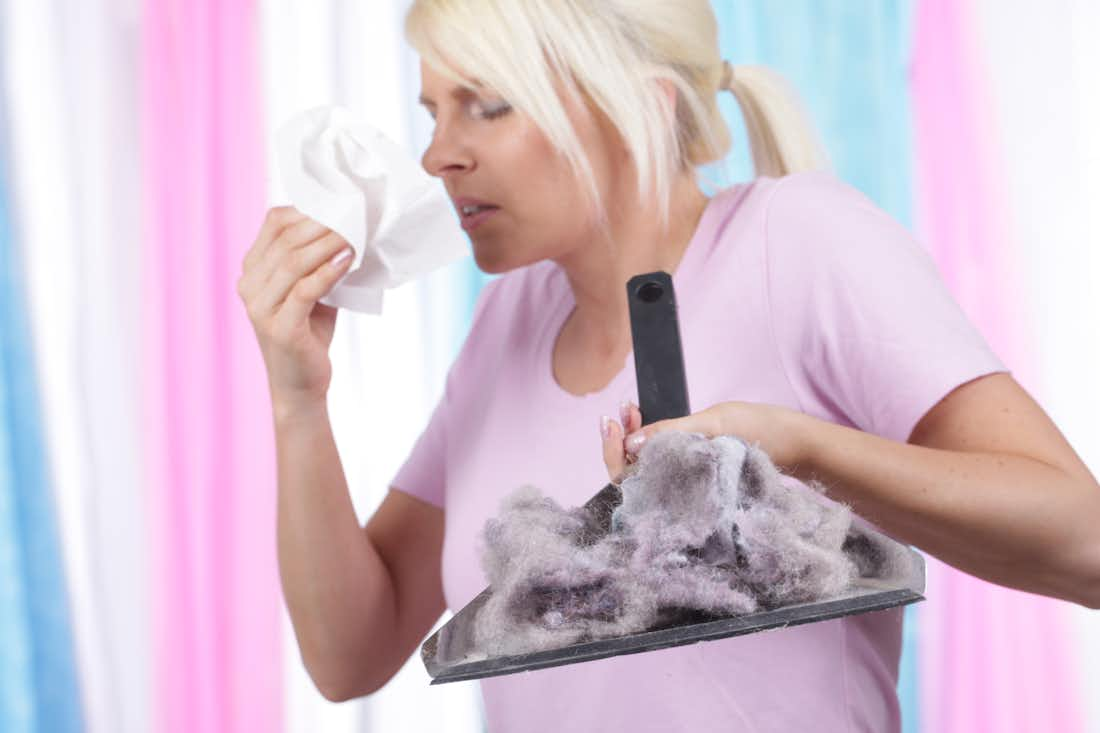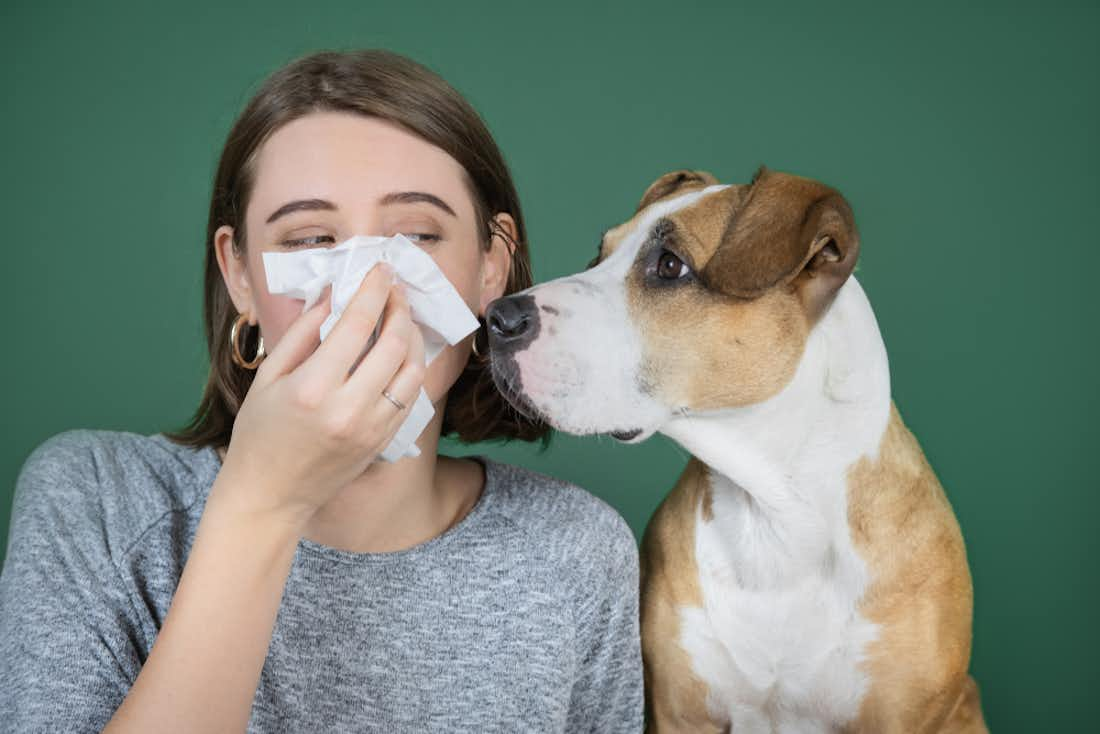Oct 13, 2021
Allergen Immunotherapy: How Successful Is It?
9 minute read
If you’ve been dealing with allergies for years and haven’t found a treatment that works, it’s time to look into immunotherapy. Immunotherapy is a unique preventative treatment strategy designed to get your immune system used to the allergens causing your symptoms. Over time, the treatment can make your allergies much easier to deal with – it may even eliminate your symptoms.
So, how does immunotherapy work, and how well does it work? Let’s find out.
First Off: What Causes Allergies?
An allergic reaction occurs when your immune system overreacts to a specific substance and engages in its inflammatory response. This response can cause symptoms that range from mildly uncomfortable to, in more severe cases, life-threatening.
If you are allergic to a food, medication, or other ingestible substance, you’ll most likely only have an allergic reaction if you are directly exposed. However, in allergic rhinitis, also known as hay fever, symptoms can pop up even from indirect exposure to allergens.
Hay Fever Explained
Allergic rhinitis is a reaction to breathing in airborne allergens through your nose. Breathing these allergens in can cause your nasal passages to swell up, making you feel congested and stuffy. Other hay fever symptoms include a sore throat, itchy, watery eyes, fatigue, sneezing, and coughing.
For most people, allergic rhinitis is a seasonal struggle. Triggers like pollen, dust mites, ragweed, and other common allergens usually hit their highest count at certain parts of the year.
However, there is such a thing as perennial allergic rhinitis – essentially, allergies that last through the whole year. If you’re suffering from allergy symptoms regardless of the season, you may be allergic to a wide array of common allergens.
How Are Allergies Diagnosed?
The best way to get a formal diagnosis for your allergies is to take a test. An allergist can administer tests, but you can also self-administer your test at home. If you choose an at-home test, you’ll collect a small sample of your blood, then send it off to a lab for analysis. The lab will gather information based on your sample and relay it to an allergist for further examination.
Based on your blood sample, your allergist can determine what the causes of your seasonal allergies are. You might be having an allergic reaction to multiple triggers – pollen and mold, for example – or just one.
Treatment for Allergies
Immunotherapy isn’t the only allergy treatment out there. In fact, it’s often not the first treatment option that allergy sufferers turn to.
The most commonly-used source of relief for seasonal allergies is an over-the-counter medication. Antihistamines are a class of drugs that mitigate your immune system’s release of histamines, key players in an allergic reaction. These drugs are typically available at your local pharmacy, but you’ll need a prescription for some stronger antihistamines.
Antihistamines Can Help a Lot, But…
Antihistamines can provide all-day relief from allergy symptoms, especially if your allergies are mild. However, taking an antihistamine every day is more of a management strategy than a treatment strategy. With antihistamines, you’re likely to deal with fewer symptoms, but you’ll still be just as allergic to your triggers as before.
So, is there a way to actually make your allergies go away? That’s where immunotherapy comes in. Let’s explore the science behind this treatment option and determine whether it’s the right choice for you.
Allergy Shots: How Do They Work?
There are two main types of allergy immunotherapy: sublingual and subcutaneous. Subcutaneous immunotherapy is often referred to simply as allergy shots. An allergist in-office administers these immunotherapy treatments. They function quite a bit like a vaccine, exposing your immune system to a small amount of an allergen to reduce your sensitivity and make you less susceptible to symptoms.
Who Are Allergy Shots For?
Subcutaneous immunotherapy is a great treatment option for anyone suffering from, seasonal allergy symptoms. If your symptoms come and go and are manageable with a prescription or over-the-counter antihistamines, you might not need to turn to immunotherapy at all. However, if allergies rule your life and make you miserable, it’s a great idea to talk to your allergist about shots.
Some factors to consider when looking into allergy shots are the cost of treatment, the duration of treatment, and your comfort level with needles. Here’s why it’s so important to give these potential concerns some thought before diving into immunotherapy.
Allergy Shots Can Be Expensive
Depending on the benefits you get from your job and where you live, allergy shots may or may not be covered by insurance. Even if your insurance does help you pay for the treatment, it can still be expensive, especially since it’s a recurring medical cost. Allergy shots are a long-term treatment, which means you’ll need frequent visits to the doctor’s office, potentially for several years.
If you’re suffering from uncomfortable, frustrating symptoms nearly year-round, the cost of subcutaneous immunotherapy could be worth it. It all comes down to how big your budget is for treatment, as well as how much your insurance can help you out.
Allergy Shots Take Time
Subcutaneous immunotherapy treatments go through two stages: build-up and maintenance. The first stage lasts between three and six months, whereas the maintenance stage could last for several years.
In the build-up phase, your allergist gradually increases the number of allergens that you’re exposed to with each shot. Staggering these dosages helps your immune system get used to the allergens and minimizes the risk of an allergic reaction. You’re still likely to experience some swelling and discomfort when you get a shot, but incrementally increasing doses can help mitigate the side effects.
During the build-up phase, you’ll most likely have to get shots once or twice per week. This can be a big-time commitment, but getting your immune system used to exposure to the allergens is necessary.
Once you hit the maintenance phase (usually by half a year into treatment), your doctor will start giving you the exact dosage every time you go for treatment. In addition, your treatments will be spread out more, with visits going down to every month instead of weekly.
If You’re Scared of Needles, Allergy Shots Can Be Tough
It goes without saying, but allergy shots can definitely be a source of anxiety if needles freak you out. Thankfully, shots aren’t the only form of immunotherapy out there. Instead of getting subcutaneous treatments, you can get sublingual immunotherapy, which uses drops or tablets instead of shots.
Sublingual Immunotherapy: A Great Alternative to Shots
If the idea of getting weekly shots freaks you out, have no fear – sublingual immunotherapy is needle-free.
This form of immunotherapy has significantly impacted allergy symptoms over time, and it’s often less expensive than weekly shots. When the cost of travel is factored in, subcutaneous immunotherapy can be pricey.
In addition to sometimes being more budget-friendly, sublingual immunotherapy is more convenient, too. You can take your daily immunotherapy medication at home, allowing you to move on with your day and skip a trip to the doctor’s office.
The Pros of Sublingual Immunotherapy
Taking immunotherapy drops or tablets instead of getting shots definitely has its perks. For one, sublingual immunotherapy has an overall lower risk of side effects, including a life-threatening anaphylactic reaction. The low risk of a serious reaction makes the treatment safe for at-home use and can give you some extra peace of mind.
In addition,sublingual allergy immunotherapy has the potential to eliminate the need for daily relief medications over time. After consistently taking immunotherapy treatments, you might not need to turn to antihistamines and other allergy meds to take the edge off your symptoms.
The Cons of Sublingual Immunotherapy
However, there are some potential drawbacks to sublingual immunotherapy that are worth considering. While immunotherapy drops and tablets are very safe, there is still always a chance that you’ll experience some irritation and discomfort while undergoing treatment.
In addition, you may have to take sublingual immunotherapy treatments daily – or at least several times a week – for a long time. In most cases, three to five years of consistent treatment is enough for your immune system’s sensitivity to allergens to lower. Nevertheless, that’s still a big-time commitment!
Ultimately, it’s up to you to decide whether subcutaneous immunotherapy is right for you and your allergies. If you need help or have questions, you can book a consultation online with one of the experienced allergists on our team. Our allergists are always ready to help, and they’ve got a wealth of experience with immunotherapy.
How Effective Is Allergen Immunotherapy?
Whether you’re getting shots or taking sublingual treatments, the general consensus is that allergen immunotherapy is one of the most successful long-term treatment methods for allergies. In fact, it may be as close as we’ve come to finding a “cure” for allergies.
While the treatments take time to work, their effects seem to last for a long time. Research conducted on allergy shots has found that they’re highly effective in long-term treatment for pollen and dust mite allergies, as well as for asthma.
Based on studies conducted on allergy shots, it seems that subcutaneous treatment is best for people with perennial (year-round) allergies. In these cases, three to four years of immunotherapy treatments were effective enough to bring long-term relief. Even seven years after treatment ended, patients were found to have a significant reduction in allergy symptoms, as well as symptoms of asthma.
Are Allergy Shots Safe?
There is always a risk for adverse reactions with any form of immunotherapy.
Keeping you safe is a priority for all allergy doctors and that's why you are monitored in the office for 30 minutes after you get an allergy shot.
Are Shots Better Than Sublingual Treatment?
When the benefits of sublingual immunotherapy and subcutaneous immunotherapy are stacked against each other, the effectiveness of the two treatments is remarkably similar. However, sublingual immunotherapy is safer overall, which is a big plus for many people.
We’re big fans of sublingual immunotherapy at Cleared. We believe in the effectiveness of the treatment, as well as its accessibility and affordability. In addition, we won’t leave you on your own to go through the treatment process! One of our experienced allergists will be available for questions and input as you take your immunotherapy treatments at home.
Getting Started With Immunotherapy
At Cleared, we recommend starting the immunotherapy treatment process with an allergy test. A test allows your allergist to get a clear sense of exactly what your immunotherapy medication needs to target. Plus, our allergy blood tests can be administered at home, which means you can start treatment remotely.
The results of your test will be analyzed by a lab, then sent to one of our allergists to be used to make your treatment plan. We offer immunotherapy treatments for allergies to grass pollen, dust mites, and ragweed, three of the most common allergy triggers.
Want to Learn More About Immunotherapy Treatments?
If you’re interested in immunotherapy, we’re here to help you get started. You can begin by booking an online consultation with one of our allergists, who will walk you through the testing and treatment process.
In addition, if you want to learn more about allergies, their symptoms, and treatment, make sure to check out our blog.
Sources:
Allergies - Symptoms and causes | Mayo Clinic
Overview - Anaphylaxis | NHS UK
Allergen immunotherapy for allergic rhinitis and asthma: A Synopsis | World Allergy



